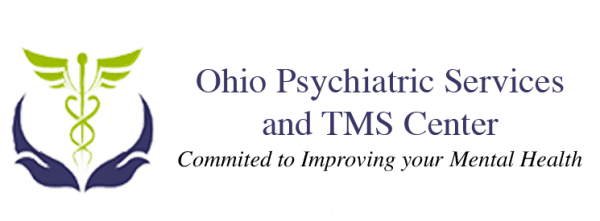What we Treat
Obsessive Compulsive Disorder (OCD)
An estimated three million men and women in the United States suffer from obsessive-compulsive disorder or OCD. This serious, chronic condition causes uncontrollable thoughts and behaviors that can negatively impact all aspects of your life. Our providers at Ohio Psychiatric Services have the expertise in treating mild to severe OCD. The team can help you regain control over your thoughts and behaviors, so you can participate in daily activities and enjoy a full, productive life.
WHAT IS OCD?
Obsessive-compulsive disorder (OCD) is a mental health condition in which irrational thoughts and fears drive you to perform repetitive behaviors. “Obsessions” refer to irrational thoughts, and “compulsions” refer to repetitive behaviors.
Many people exhibit mild obsessive-compulsive traits, like performing a specific ritual before you leave the house every day. When your obsessions and compulsions interfere with your ability to perform daily activities, however, you may have a diagnosis of OCD. It is a severe condition that can have a dramatic impact on your ability to function, your personal relationships, and overall quality of life.
WHAT ARE THE SYMPTOMS OF OCD?
OCD symptoms fall under the two categories of obsessions and compulsions. Obsessions involve persistent, intrusive thoughts or urges that cause distress. Compulsions include repetitive behaviors that you believe will alleviate the stress caused by the obsession.
Examples of obsessions include:
- Fear of germs
- Distress when objects are not arranged symmetrically
- Intrusive thoughts about harming yourself or other people
- Urges to speak or behave inappropriately
Examples of compulsive behaviors include:
- Excessive hand washing
- Repeatedly checking doors, windows, or the stove
- Repeating a word, phrase, or prayer
- Arranging household items in a rigid pattern
- Swearing or behaving sexually at inappropriate times

You may understand the unreasonable quality of your obsessions and compulsions, but feel compelled to perform them, repeatedly anyway. In some cases, patients with OCD do not recognize that their symptoms could indicate a mental health condition.
WHAT CAUSES OCD?
Researchers do not yet understand what causes OCD. Some factors do appear to contribute to the condition, such as:
- Genetics
- Brain chemistry
- Stressful life events
Other mental health disorders, such as anxiety, depression, or substance abuse can also contribute to OCD.
HOW IS OCD TREATED?
The team at Ohio Psychiatric Services designs customized treatment plans to address your specific OCD symptoms. Your plan may include Medications, Transcranial Magnetic Stimulation (TMS) treatment, counseling and the use of cognitive-behavioral therapy (CBT).
- Medications:
Medications including antidepressants and anti-anxiety medications, help many people find relief from intrusive thoughts and compulsive actions.
- Transcranial Magnetic Stimulation (TMS) treatment:
- Cognitive-behavioral therapy (CBT):
This evidence-based technique helps you retrain your thinking, so you regain control over your obsessive urges.

You do not have to struggle with OCD on your own. Providers at Ohio Psychiatric Services can help you put an end to your overwhelming thoughts and restore your quality of life. Call the office in Lancaster or Hilliard at740 201 6021 or book an appointment online today.

